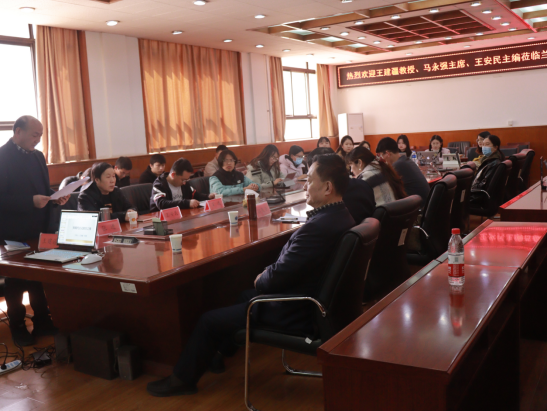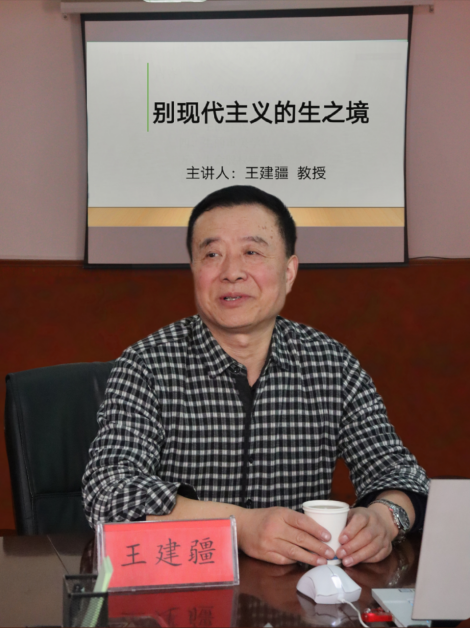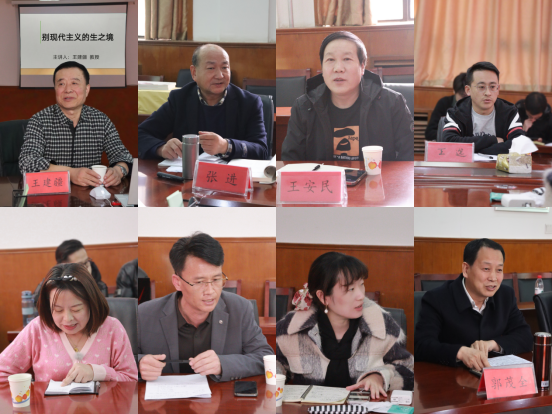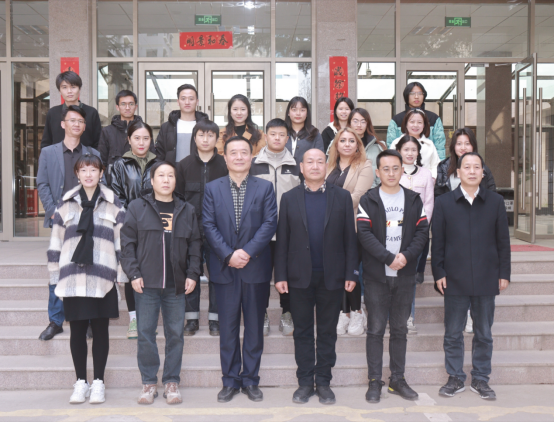Professor Wang Jianjiang from Shanghai Normal University was invited to give an academic lecture to the faculty and students of the School of Literature at Lanzhou University.
Profile:
On the afternoon of April 6, 2023, Professor Wang Jianjiang, a second-level professor and doctoral supervisor from the School of Humanities at Shanghai Normal University, as well as the Honorary Director and Academic Advisor of “the Center for Chinese Bie-Modern Studies” (CCBMS) in the United States, was invited by the School of Literature at Lanzhou University to give an academic lecture titled “The Living Environment of Bie-Modernism” in Room 102 of the Yifu Arts and Sciences Building at Lanzhou University’s Branch Campus. The lecture was presided over by Professor Zhang Jin, the director of the Institute of Literary Arts at the School of Literature. Wang Anmin, the executive editor-in-chief of Western Literature and Art Studies and Wang Xuan, the director of the editorial department, as well as Professor Guo Maoquan, the deputy dean of the School of Literature, and teachers Yao Furui and Yang Xinhua, attended and participated in the discussion. Many master’s and doctoral students participated in the lecture through a combination of online and offline methods.
Detail:

Professor Wang Jianjiang’s report focuses on five aspects: “Bie in the West” “Literature and Art of Life and Eating” “Theory of Life” “Aesthetics of Life” and “Aesthetic Theory of Life Equity”. Firstly, Professor Wang Jianjiang clarifies the connotation, generation, and development of Bie-Modernism. “Bie-Modern” includes both Bie-Modern Reality and Bie-Modernism, which is a new theory about social forms and stages of social development. It is also a philosophical reflection and theoretical proposition to bid farewell to pseudo-modernity and construct true modernity. Bie-Modernism is a new theory established on the basis of a new linguistic context, aiming to critically examine and reflect upon the present state of Bie-Modernism in order to achieve self-renewal. Since the formal proposal of Bie-Modernism in 2014, it has attracted wide attention and enthusiastic discussions in academic circles both domestically and internationally. After the theoretical exposition, Professor Wang Jianjiang focuses on the interpretation of literature and art related to life and eating, using a large number of domestic and foreign literary and artistic works to help students better understand the art of Bie-Modernism, making it vivid and thought-provoking. Subsequently, Professor Wang Jianjiang introduces various historical and contemporary perspectives on life and death from diverse cultures, proposing the theory of life equity, which refers to the natural rights of citizens to share the benefits and dividends from GDP. Behind life equity lies the mindset of “the movement of its opposite” “teaching outside the tradition” and “leap-frogging pauses”. Building upon this foundation, Professor Wang Jianjiang further expounds on the aesthetics of life, stating that life is of utmost importance, and what determines life or death is power. Finally, Professor Wang Jianjiang elucidates the aesthetic theory of life equity in Bie-Modernism, calling for attention to life as a foundation of aesthetics and art, and always keeping in mind the bottom line of life.

During the dialogue and communication session, the faculty and students of the School of Literature, as well as the attending experts, asked Professor Wang Jianjiang questions regarding the perspective of “Bie-Modernism” theory, such as how to perceive pre-modern things from the viewpoint of Bie-Modernism, expectations for future research on Bie-Modernism, guidance and suggestions for the current reality in China from the perspective of Bie-Modernism, the relationship between happiness and aesthetic feeling, and the rational source of the theory of life equity. Professor Wang Jianjiang provided in-depth and detailed answers, and the on-site discussions were enthusiastic. Professor Zhang Jin made an academic summary, stating that Professor Wang Jianjiang’s lecture was brilliant, broad in perspective, addressing significant topics, and it has stimulated new thinking in the academic community about current cultural and artistic phenomena. It serves as an excellent demonstration of theoretical construction in China and is highly enlightening.

